Health & Medicine
-
 Health & Medicine
Health & MedicineAncient history of canine cancer decoded
A contagious cancer has been plaguing dogs for 11,000 years, a new genetic analysis reveals.
-
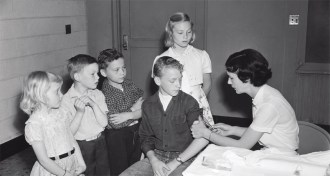 Health & Medicine
Health & MedicineVaccine vindication
At least 103 million cases of childhood disease have been prevented by vaccines since 1924.
-
 Health & Medicine
Health & MedicineHow to read a book to your baby
To help your baby get the most out of story time, turn the story into a conversation, not a monologue.
-
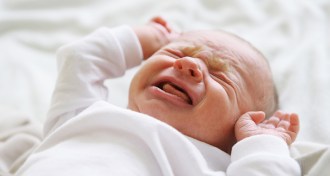 Health & Medicine
Health & Medicine‘Good bacterium’ prevents colic symptoms in newborns
Crying time was nearly halved in babies receiving the beneficial microbe.
By Nathan Seppa -
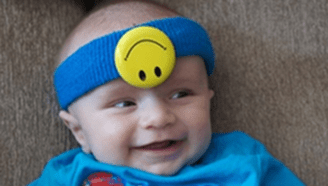 Health & Medicine
Health & MedicineBaby-cam captures an infant’s world
What do babies see all day? Faces. Lots of faces.
-
 Health & Medicine
Health & MedicineGreen tea may sabotage blood pressure medication
Antioxidants in drink may keep intestinal cells from taking up drug.
By Beth Mole -

-
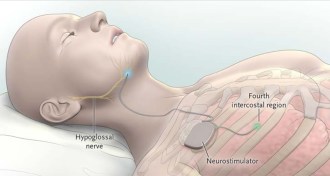 Health & Medicine
Health & MedicinePacemaker treats sleep apnea
Experimental device works for many patients who can’t use breathing machines.
By Nathan Seppa -
 Health & Medicine
Health & MedicineBabies tune in to happy sounds
High pitched, cutesy voices prove irresistible to infants.
-
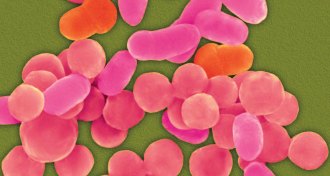 Microbes
MicrobesMe and my microbiome
Tina Hesman Saey tries out new services offering clients a peek at their own bacteria.
-
 Neuroscience
NeuroscienceHormone hampers effects of marijuana
Study of pot-blocking brain chemical in rodents could lead to new treatments for cannabis addiction.
-
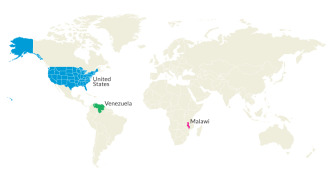 Microbes
MicrobesGut bacteria respect diets, not borders
Malawian and Guahibo gut microbiomes resembled those of herbivorous mammals, while American guts were more similar to carnivores’.